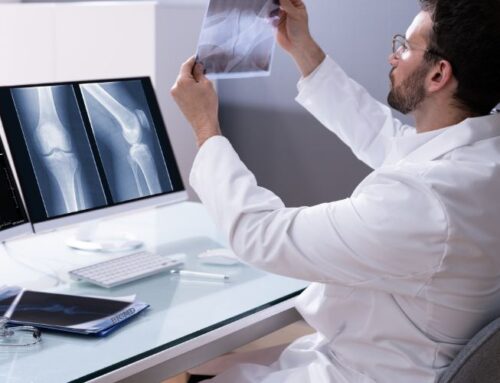What to do when considering surgery
By BICMD
The decision to undergo a surgical procedure should be taken seriously. Even simple procedures like the removal of a small bone spur, to more invasive surgeries, like a total knee replacement, require some careful consideration. There are several things to think about and to plan for if you or a loved one needs surgery. Here are a few things to consider.
The purpose of getting an orthopedic second opinion is not to prove your current doctor “wrong.” In fact, many second opinions often mirror the diagnosis and recommendations of the original orthopedic specialist. The purpose of a second opinion is to provide clarity on your diagnosis and greater certainty on the right course of treatment.
Do I need a second opinion?
As our parents always taught us: “It never hurts to get a second opinion.” Second opinions are especially helpful if you are considering major surgery. One advantage is having an expert evaluate your condition and either reaffirm your decision to have surgery, or to give you other options. Experts who are top in their field may charge a small fee for their second opinion(s), but when looking at spending thousands of dollars on surgery, as well as time and effort for the recovery, it is money well spent to have that reassurance and expert guidance.
What are my alternatives?
Most highly qualified and specialty trained surgeons will not be in a rush to “put you under the knife” until it is absolutely necessary. Some conditions or injuries are unavoidable and require immediate surgery, other conditions have several alternatives that may be utilized to avoid surgery. Non-surgical options that may be explored include:
- Biologic medicine: Not everyone qualifies for PRP (platelet rich plasma) or BMAC (bone marrow aspirate concentrate) but those who do have seen a significant difference in their joints and in the timing of surgery. Some surgeries can be put off or completely avoided by using the new biologic procedures available.
- Cartilage replacement or restoration: Similar to biologic medicine, there are many new and proven cartilage restorations treatments available. A second opinion may guide you to the right treatment for your condition.
- Joint Injections: In orthopedic medicine there are now a number of joint injections that can help alleviate pain, reduce swelling and restore range of motion. These non-invasive injections include:
- Corticosteroid Injections
- Hyaluronic acid injections (HA)
- Platelet-Rich Plasma (PRP)
- Physical therapy: No one loves physical therapy, but it can play a vital role in delaying surgery or avoiding it all together. All orthopedic surgeons have physical therapists that they utilize, as well as treatment plans to help avoid surgery.
Is this the right surgery for me?
If surgery is unavoidable, patients need to ask if the specific surgery they are undergoing is the right surgery for them and their condition or injury. Patients should ask about the benefits of the surgery as well as the possible problems that may occur. It is good to know if the surgery will completely take care of the problem or if there are additional surgeries that may be required. It is important to take into consideration your own goals and to have a realistic view of what you want after surgery.
Will this surgery “fix” my problem?
The goal of surgery, especially orthopedic surgery, is always to restore the patient to the best pre-surgery state possible. For most orthopedic patients that means the surgery will relieve their pain and restore their range of motion and strength.
Patients have different requirements for what “back to normal” means for them. For older patients, that might mean that surgery restores mobility and eliminates pain. For athletes, surgery might mean they can return to the sport they love and be as good as (if not better than) before their injury.
How long is the recovery after surgery?
Successful surgery requires more than just an operation. Patients who undergo orthopedic surgery need to be aware of the healing time required and should be ready to commit to post-surgical physical therapy. The best outcomes from any surgery are possible when done with a team approach. You, the patient, are part of the team that helps make your surgery a success. Willingness to follow-through on a detailed physical therapy plan will help give you the best outcome after an excellent surgeon has repaired your condition. Your surgeon will be able to give you approximate healing and recovery times based on your individual surgery, health, and post-surgical requirements.







